
Last week, I was sitting at happy hour with a half-finished beer in front of me, talking to a friend about just how much we drink on a regular basis.
"Well, it's different for you," she insisted. "You don't really drink anymore."
I was annoyed as soon as she said it. It felt like she'd offhandedly pointed out that I wasn't fun, which is not something one ever hopes to hear. Beyond that, I was offended because being the girl who "doesn't really drink" wasn't an identity I'd had since my freshman year of college.
I didn't go broke, but I was barely breaking even
It's true that I've never been someone who routinely gets wasted on Friday nights, but going to a bar and having three or four beers certainly wasn't out of the question for me. And yet now, apparently, other people see me as the friend who doesn't really drink.
This all started around the time I moved from a small town in upstate New York to Los Angeles, only to learn one very simple truth: drinking in a big city is expensive. (Related to that truth, I also learned that going out to eat in big cities is very expensive, taking ride shares home added up quickly, and happy hour deals in LA were still more expensive than the prices I was used to.)
Nonetheless, I spent my first six months exploring the city on an entry-level salary. Soaking up L.A. on $35,000 per year isn't the most realistic endeavor, which I learned within those first six months. I didn't go broke, but I was barely breaking even, which was frustrating because I'd depleted my savings during my post-grad move to L.A.
So, I decided to cut back and implement a few rules:
Stay In The Know
Marie Claire email subscribers get intel on fashion and beauty trends, hot-off-the-press celebrity news, and more. Sign up here.
If the ride share was going to be more than $10, I had to drive myself or find an alternate way to get somewhere. This meant if I wanted to go to a party six miles away (which is pretty standard in LA), I had to drive myself. I never have more than one drink way before I drive, so this rule meant I had a one-drink maximum on most weekend nights.
Even if I wasn't driving, I would never buy more than one drink at a bar.
I would limit my happy hour intake to once a week.
I would only go out to eat at restaurants where an entrée cost $12 or less.
I'd stop buying lunch at my office.
Looking at these rules, I can see why—a year and a half later—my friend would think I don't really drink anymore. My tolerance isn't what it used to be. I still go to happy hour about once a week, and I never buy more than one drink, so the whole experience costs me six bucks, with tip. I work remotely now, instead of at an office, so I never buy lunch.
When I go out to eat more, I never do delivery. And within the last 18 months, I've found my go-to Indian restaurant, Thai place, ramen bar, and taco stand where I can get dinner for less than $10 ($13 with tip). I've also learned to really enjoy cooking, because nothing forces you to learn to cook food you actually like more than eating the majority of your meals at home.
When you're new in a city, you're more apt to say "yes" to everything because you need to make friends, and I reeled that in as well. I stopped having "networking drinks" with the random people from my office I didn't know, too. This helped in a major way.
When you're new in a city, you're more apt to say "yes" to everything because you need to make friends
When I quit my office job to go freelance at the beginning of 2015, my savings were what made my career change possible. I aggressively saved for the last two months that I was at my full-time job and, when I left, I had three months of living expenses in the bank. In 2015, my first year as a freelancer, I saved an additional $5K even though I was not making too much more than I did at my entry-level job.
Does it suck sometimes to turn down invitations, or be the one drinking seltzer while everyone else nurses their Pinot Noir? Yes. I dislike the fact that I'm now seen as the often-sober person because I honestly liked the let's-have-another-round version of myself.
I also think that imposing rules on my spending habits now makes me feel guilty for spending money at all, which isn't particularly healthy, either.
I honestly liked the let's-have-another-round version of myself
While I appreciate that my friends are happy to do at-home happy hour, instead of meeting up at nice restaurants after work, I don't want to feel guilty about occasionally choosing a $30 meal over a $10 bowl of ramen when I have "splurge weeks."
All in all, I was probably spending $150 extra dollars a week on eating and drinking out (office lunches, brunch, ubers, the works). So, I was spending about $600 on "experiences" per month, which was pretty much ALL of my disposable income after paying my bills. I cut that down to about $200 a month, so I was easily saving $400/month. I also made the choice to move to a cheaper apartment, which saved me an extra $250 per month.
I plan to continue saving regularly, but now that I've got a healthy emergency fund, I also need to let myself off the hook a little and consider revising my rules. But even though I can't seem to stomach more than one drink right now, I definitely don't regret the $8,000 in savings.
Follow Marie Claire on Instagram for the latest celeb news, pretty pics, funny stuff, and an insider POV.
Maya is a writer living in Los Angeles.
-
 All the Easter Eggs and Name Drops on Taylor Swift's 'The Tortured Poets Department,' Explained
All the Easter Eggs and Name Drops on Taylor Swift's 'The Tortured Poets Department,' ExplainedDigging through the fan theories so you don't have to.
By Quinci LeGardye Published
-
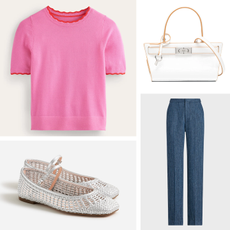 This Week's Best On-Sale Picks Include a Tory Burch Bag and Pretty Silver Ballet Flats
This Week's Best On-Sale Picks Include a Tory Burch Bag and Pretty Silver Ballet FlatsWarm weather is finally here—it's time to dress like it.
By Brooke Knappenberger Published
-
 A Sporty It-Sneaker Era Is About to Begin
A Sporty It-Sneaker Era Is About to BeginNike's next Air models are designed for Olympic athletes, but they'll soon be all over street style.
By Halie LeSavage Published
-
 24 Whiskey Cocktail Recipes to Whip Up for St. Patrick's Day
24 Whiskey Cocktail Recipes to Whip Up for St. Patrick's DayIf you're feeling lucky on March 17, say sláinte and try one of these spirited sips.
By Michelle Stansbury Published
-
 Meet the Woman Blending the Traditional and the Modern in French Winemaking
Meet the Woman Blending the Traditional and the Modern in French WinemakingHow Florence Haynes combined the traditional and the contemporary for Gratien & Meyer Crémant de Loire.
By Sponsored Published
-
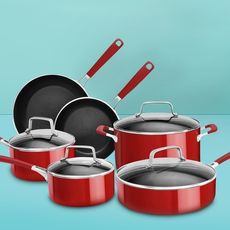 The 10 Best Nonstick Cookware Sets
The 10 Best Nonstick Cookware SetsThe nonstick pans, pots, and skillets that make cooking easy.
By Nicole Papantoniou, Good Housekeeping Institute Published
-
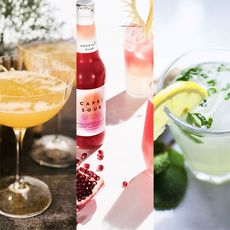 23 Easy Mocktail Recipes to Try In 2023
23 Easy Mocktail Recipes to Try In 2023Even better than the real thing.
By Michelle Stansbury Published
-
 4 Big Ideas for Small Holiday Get-Togethers
4 Big Ideas for Small Holiday Get-TogethersNate Berkus and Jeremiah Brent on how to level-up your scaled-down celebration.
By Betsy Goldberg Published
-
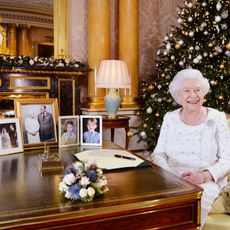 The Royal Family Shared the Recipe for the Queen's Favorite Boozy Christmas Pudding
The Royal Family Shared the Recipe for the Queen's Favorite Boozy Christmas PuddingThe Royal Family Twitter account shared the royal chef's recipe for the Queen's favorite boozy Christmas pudding.
By Kayleigh Roberts Published
-
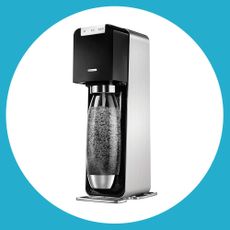 5 Best Soda Streams for Convenient Carbonation
5 Best Soda Streams for Convenient CarbonationUpgrade your sparkling water game with a Soda Stream carbonator that'll fizz up drinks in a flash.
By Zarah A. Kavarana Published
-
 3 Pro Tips for Putting Together the Best Bouquets
3 Pro Tips for Putting Together the Best BouquetsEssential advice for everyday enthusiasts and budding florists alike.
By Marie Claire Published